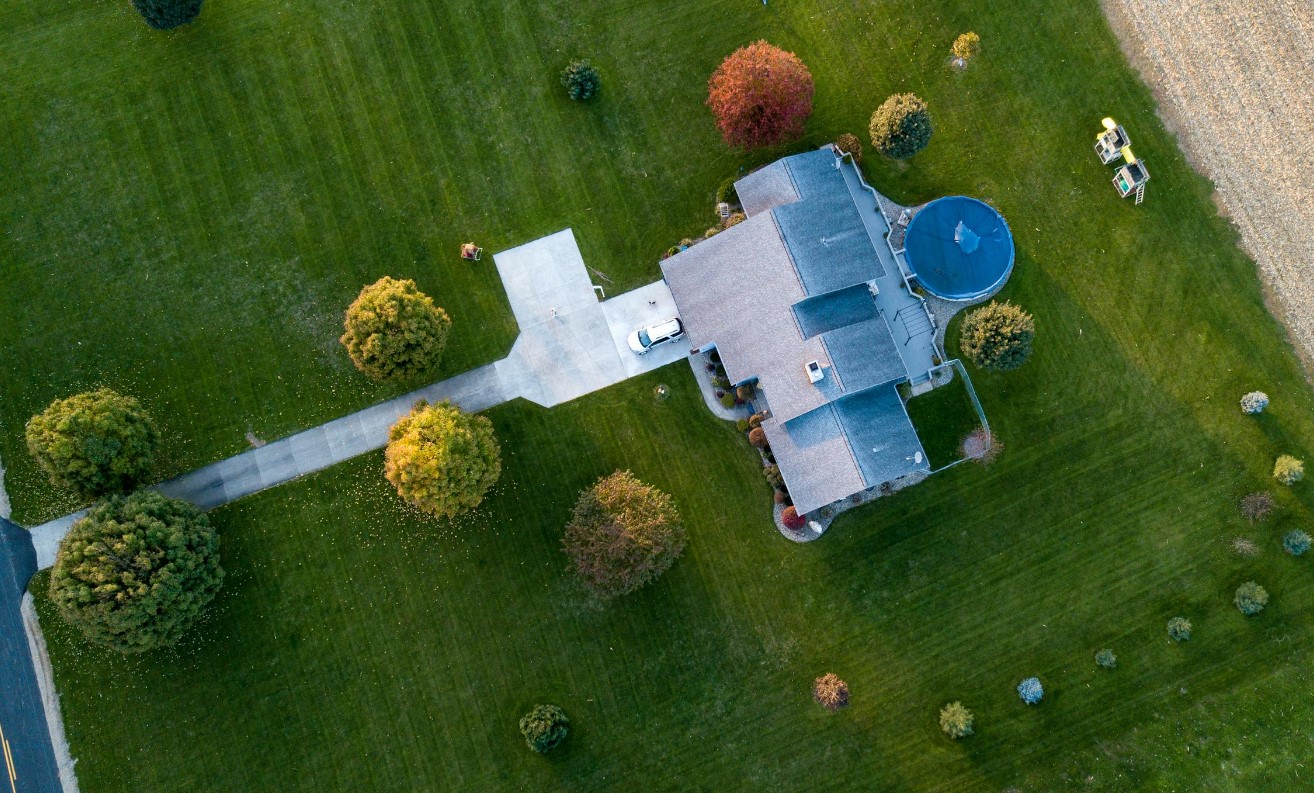- What Are the Lawn Mowing Laws in the UK?
- What Time Can I Mow My Lawn Legally in the UK?
- When Is It Too Early for Lawn Mowing?
- When Is It Too Late to Mow the Lawn?
- Can I Mow My Lawn on a Sunday or Bank Holiday?
- How Do Noise Pollution Laws Impact Lawn Mowing?
- What Are the Penalties for Mowing Your Lawn at the Wrong Time?
- When Should I Contact My Local Council About Lawn Mowing?
- Lawn Mowing Time Guidelines by Region
- Tips for Avoiding Complaints When Mowing Your Lawn
- When Should I Use Alternatives to Mowing?
- Conclusion
When is the legal time to mow lawn UK? You might have this question. Lawn maintenance is an essential part of homeownership in the UK, especially for those who take pride in keeping their garden neat and tidy.
However, many homeowners are unaware of the rules governing when you can legally mow your lawn.Mowing at the wrong time can lead to complaints from neighbours or even fines from your local council.
In this guide, I’ll cover everything you need to know about the legal time to mow your lawn in the UK, so you can avoid any legal trouble while keeping your garden looking its best.
What Are the Lawn Mowing Laws in the UK?
Lawn mowing in the UK is subject to several regulations, primarily centred around noise pollution.
Councils are responsible for maintaining peaceful neighbourhoods, and one of the ways they do this is by regulating the noise generated by activities such as lawn mowing.
The laws are not universal across the UK, but they generally follow the principle of restricting noise during certain hours of the day, particularly during early mornings and late evenings.
The UK lawn mowing laws are typically governed by local councils, with some councils enforcing stricter rules than others. It’s important to familiarize yourself with your specific region’s guidelines to ensure you’re complying with the law.

What Time Can I Mow My Lawn Legally in the UK?
In most parts of the UK, you can mow your lawn during the daytime, typically between 7 AM and 11 PM on weekdays.
These times are based on general noise control laws designed to minimize disturbances in residential areas.
- Weekdays: Commonly, lawn mowing is allowed from 7:00 AM to 9:00 PM.
- Weekends: The start time is often pushed back to 8:00 AM or 9:00 AM to respect neighbours who may want to sleep in.
It’s advisable to check with your local council to confirm these times, as they may vary by region or even between different types of residential areas (e.g., rural vs. urban).
When Is It Too Early for Lawn Mowing?
One of the common complaints councils receive is about early morning lawn mowing.
Mowing with lawn mower too early can disrupt the peace and quiet that most people expect in the morning hours, especially on weekends.
In general, mowing before 7:00 AM on weekdays or before 8:00-9:00 AM on weekends is considered too early and could lead to complaints.
Early morning mowing is seen as a violation of noise pollution laws, as people are more likely to be at home and seeking peace during these times.
When Is It Too Late to Mow the Lawn?
Just as mowing too early can cause problems, mowing too late in the evening can disturb neighbours, especially in more densely populated areas.
Late-night mowing is generally prohibited after 9:00 PM in most parts of the UK. Some areas may have stricter regulations, particularly in residential neighbourhoods, where noise restrictions can kick in as early as 8:00 PM.
If you often find yourself pressed for time in the evenings, it’s best to schedule your mowing during the day or earlier in the evening to avoid complaints from neighbours or fines from your local council.
Can I Mow My Lawn on a Sunday or Bank Holiday?
Lawn mowing on Sundays and Bank Holidays is a grey area. Many councils have specific rules that restrict noisy activities on these days, especially during early morning or late evening hours.
For example, some councils recommend that residents avoid noisy garden work before 10:00 AM on Sundays.
Bank Holidays, which are typically days of rest, also carry similar restrictions. It’s always a good idea to check with your local council to see if there are specific Sunday and holiday guidelines in your area.

How Do Noise Pollution Laws Impact Lawn Mowing?
The UK has strict noise pollution regulations, which are designed to prevent excessive noise in residential areas.
Under these regulations, local councils have the authority to investigate and act on noise complaints, including those related to lawn mowing.
If you consistently mow your lawn during restricted hours or create excessive noise, neighbours may file a formal complaint, leading to an investigation by the local council.
If found in violation of noise laws, you may face penalties such as fines or formal warnings. It’s crucial to be aware of and comply with these laws to maintain harmony in your community.
What Are the Penalties for Mowing Your Lawn at the Wrong Time?
If you mow your lawn outside of the allowed hours or ignore warnings from your local council, you may be subject to penalties. While the specific penalties vary by region, they often include:
- Fines: Councils may issue fines if you repeatedly break noise regulations.
- Warnings: In some cases, you may receive a written warning before any fines are issued.
- Legal Action: In extreme cases where noise disturbances persist, councils may take legal action.
Staying informed about the grass cutting regulations UK and your local council’s rules can help you avoid these penalties.
When Should I Contact My Local Council About Lawn Mowing?
If you’re unsure about the lawn mowing regulations in your area, or if you’ve received complaints from your neighbours, it’s a good idea to contact your local council.
Councils typically have guidelines available on their websites, or you can reach out to them directly for clarification.
Here are a few councils that provide detailed guidelines on lawn mowing time restrictions:
- London Borough of Camden
- Manchester City Council
- Birmingham City Council

Lawn Mowing Time Guidelines by Region
| Region | Earliest Time | Latest Time | Special Rules |
| London | 8:00 AM | 9:00 PM | No noise on Sundays |
| Manchester | 7:30 AM | 10:00 PM | Holidays restrictions |
| Birmingham | 7:00 AM | 9:30 PM | No mowing after 8 PM Sat |
This table highlights the typical lawn mowing guidelines in major UK cities. Be sure to check your local council’s website for the most up-to-date information specific to your area.
Tips for Avoiding Complaints When Mowing Your Lawn
To avoid complaints, here are a few tips that can help:
- Mow during appropriate hours: Stick to the recommended times to avoid noise complaints.
- Use quieter equipment: Electric or battery-powered lawnmowers are quieter than petrol mowers.
- Talk to your neighbours: If you’re planning to mow outside of normal hours, consider discussing it with your neighbours in advance.
These simple practices can help you maintain peace in your community while keeping your lawn in great shape.
When Should I Use Alternatives to Mowing?
If you’re restricted by time or the noise levels of your mower, consider using alternative grass maintenance methods. For example:
- Mulching: This can be done during non-peak hours and is quieter.
- Quiet electric mowers: These are a great alternative if you need to mow during early mornings or late evenings.
These alternatives to mowing allow you to maintain your garden without disrupting your neighbours or breaking noise laws.
Conclusion
In conclusion, understanding the legal time to mow your lawn in the UK is crucial for maintaining good relations with your neighbours and avoiding fines from your local council.
By following the rules set by your local council, being mindful of noise pollution, and taking steps to be a considerate neighbour, you can keep your lawn looking its best without causing unnecessary disturbances.
Be sure to always check your local council’s specific guidelines and opt for quieter or alternative grass-cutting methods when possible.


0 Comments